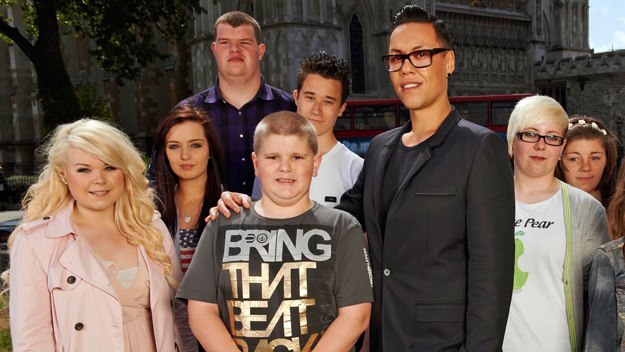
Is it normal to hurt yourself?

TRIGGER WARNING: This page contains information about self-harm which may be triggering.
Pain is a generally seen as a bad thing and not something you’d want to deliberately inflict upon yourself. But for some people, hurting themselves has become a way to deal with emotional distress. Self-harming doesn’t make you a bad person and it doesn’t mean you’re on course for a trip to the nearest mental health facility. However it is definitely a risky behaviour that carries with it the very real danger of causing yourself permanent damage or even putting your life at risk. So what drives people to hurt themselves and what strategies can they use to cope? In this guide we’ll look into some of the truths and myths around self-harm as well as the places you can turn to for help.
In My Mad Fat Diary, Rae’s battles with her mental health
can't stop her from being awesome. Check out some of our favourite life lessons from the show in My Mad Fat Diary: Picks over on All 4 (guidance advised for mature content).
Poll
Do you ever feel out of control?
What's pain got to do with it?
Let’s have a closer look at what self-harm is all about...
What is self-harm?
‘Self harm’ means any act of deliberately hurting yourself. It is often understood to be a physical response to emotional pain: a way of coping with things that cause distress. It usually happens during times of anger, stress, worry or depression and can be used as a way to control negative emotions. It is also used as a form of self-punishment for people who feel like they’ve done something wrong.
What counts as self-harm?
The term is used to describe a wide range of behaviours from the obvious ones (such as cutting, burning, pinching and hair pulling) to less immediate ways of hurting yourself such as alcohol abuse, drug addiction and eating disorders.
How common is it?
Shockingly it is estimated that around 13% of young people between 11 and 16 will try to self-harm at some point and these figures are on the increase. Despite the sky-high figures for teens, the issue can affect anyone, no matter what their age, gender or background.
Fact vs. fiction
There are plenty of myths and misconceptions around self-harm that just simply aren’t true. Self-harmers aren’t usually seeking attention or attempting suicide. They don’t do it because it ‘feels nice’ or because they are mentally ill. And it’s certainly not just a ‘girl thing’. Self-harm is a complicated issue faced by a wide range of people and it is can be the result of lots of different factors.
Physical risks
First and foremost, self-harm can lead to serious physical injury. As well as the risk of scarring, disfigurement or pain, it is easy for people practicing self-harm to misjudge the level of damage they’re doing, leading to serious injury or even death.
Psychological risks
Whilst some people find that self-harm can provide a degree of emotional relief in the short term, it usually gives way to even greater levels of distress and depression over time. This can lead to a vicious circle of negative emotions and abuse that can quickly spiral out of control. The danger is heightened by the addictive nature of self-harm. The act of hurting yourself releases endorphins, often producing a ‘rush’. Just like drug addiction, this rush lessens each time, leading people to inflict bigger and more damaging injuries on themselves to get the same ‘hit’. Also, whilst self-harmers are not necessarily mentally ill, it can be a symptom of underlying mental health problems that may need specialist attention.
Finding Help
Whilst self-harming is a serious condition, it is one that can be treated effectively with the right help and support. Many people find that the best way to tackle self-harm is by talking through their emotions and coming to understand feelings behind their behaviour. Talk to an adult who you trust such as a your mum or dad, a teacher or your doctor or, alternatively call Childline for free to speak to a counsellor in confidence (0800 1111).
Pain Relief
The right treatment and support can be very effective in dealing with self-harm and the earlier you seek help, the better. Check out our support site for advice links, support groups and places to seek treatment.




